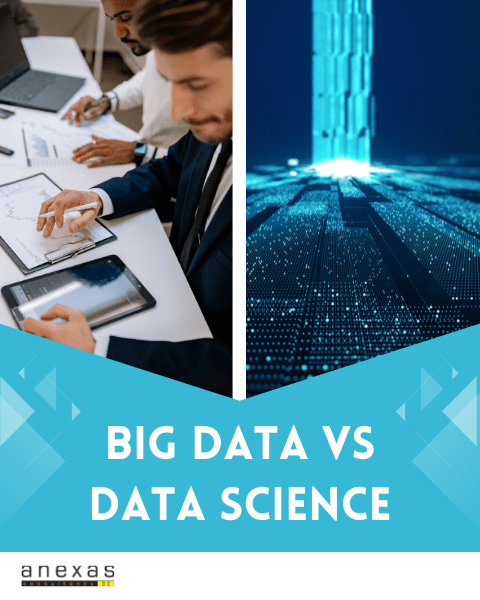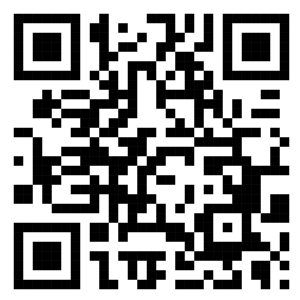Big Data vs Data Science
The tremendous increase of information available online has resulted in the need for Big Data. Big Data is the collection of large and complex data, which is not collected in the traditional methods we know; like graphs, charts, etc. Data Science, on the other hand, is the process of extracting insights from big data with a scientific approach to help businesses make decisions.
In this article, we will discuss the key differences between Big Data and Data Science, while comparing the objectives, skills, tools, and careers in both fields.
Difference between Big Data and Data Science
The main difference between Big data and Data Science is that Big Data needs to be studied by businesses to understand the scope of improvement and competitiveness while to study big data, Data Science is needed which draws insights using mathematics, statistics, and computer science.

What is Big Data?
Big Data refers to the huge volume of data obtained by large organisations, which can not be stored using traditional methods. Big data is characterised by its Volume, Variety, Velocity, Veracity and Value. It includes structured, semi-structured and unstructured data. Data warehousing and Data Lakes are used to store Big Data.
A few examples of big data:
- Scientific research data
- Social media data
- Stock Market data
Skills required in the Big data profession
A few skills which are required by Big Data professionals are:
- Analytical skills, to understand the relevance of data.
- Programming skills, to process data into insights. This includes knowledge of C, Python , Java etc.
- Data visualisation skills, to present their findings using charts or graphics.
- Business skills, to understand the objective of the organisation and work on big data accordingly.
- Mathematical or Statistical skills, to manage data structures and patterns to deal with complex data.
- Data Mining skills, to find patterns from large data sets for getting customer information to direct the strategies.
Tools used in Big data
Big data involves collection,management, interpretation and analysis of data for organisations to improve their decision making. While choosing a tool, it is important to check its cost, security, scalability, analytics and user interface, while keeping in mind the business objective.
Some popular tools used in Big Data are
- Hadoop
- Spark
- Storm
- Cassandra
- MongoDB
- Flink
- Tableau
- Kafka
- R programming
- RapidMiner
Career in Big data
Demand for Big Data professionals increases with higher salary benefits for the professionals. It is required to track the presence of businesses, improve customer experience, increase competitiveness for business advantages. These jobs require experienced and highly educated individuals from relevant backgrounds.
Some of the common Big Data job profiles are
- Big Data Engineer
- Data Architect
- Data Security Analyst
- Database Manager
- Data Modeller
- Database Developer
- Database Administrator
Similarities and differences between big data and data science
Big data and data science are intertwined realms in the vast landscape of data handling. Both converge on extracting value from data. Big data primarily refers to the immense volumes of data—structured and unstructured—that traditional databases can’t handle. Its focus is on storage, processing, and retrieval. Data science, on the other hand, is a broader domain that encompasses a range of techniques to analyze and interpret that data, including but not limited to big data. While big data lays the foundation by managing voluminous data sets, data science dives deeper, leveraging algorithms and analytical methods to derive actionable insights from them. In essence, big data provides the canvas, and data science paints the picture.
Benefits and uses of big data and data science
Data science and big data, when combined, become a powerhouse for organizations in the modern era. Big data provides the capability to harness vast and varied datasets, capturing nuances from myriad data points. Data science, leveraging this richness, uses advanced algorithms and models to extract actionable insights, patterns, and predictions. The benefits are manifold: businesses can tailor marketing strategies with precision, forecast trends, optimize operations, and even enhance user experiences in real-time. From healthcare, where patient care is personalized, to retail, where shopping experiences are customized, the fusion of data science and big data is revolutionizing industries and driving innovation at an unprecedented pace.
In the digital era, the need of data science and big data is indispensable. As data proliferates, big data manages the deluge, while data science translates it into actionable insights. Their synergy is vital, enabling businesses to navigate the information tide, make informed decisions, and harness the era’s true potential.
What is Data Science?
Where Big Data is related to collection and processing of Data, Data Science is a multidisciplinary process which involves Mathematic, statistics, programming, analytics, Machine Learning, Artificial Intelligence and deep learning along with other scientific methods to gain information from data. The lifecycle of Data Science involves data extraction, maintenance, cleansing, modelling and presenting to businesses.
For example, In a cab service system Data science is used on multiple levels for incorporating maps for the route, cost of the drive, information about drivers, transport areas customer experiences, etc.
Skills required in Data Science
A few skills required in data science are
- Programming skills like SAS or R.
- Coding skills like Python, Java C/C++, etc.
- Working with SQL for complex queries.
- Working with unstructured and other types of data.
- Deep learning and Machine Learning
Tools used in Data Science
Data Science involves multiple areas of work around data which requires various tools and systems. The process includes creating algorithms, storing, processing, cleansing, analyzing, and presenting data. As Big Data is a subset of Data Science, the tools used in Big Data are also a part of Data Science.
Some of the common tools used in Data Science are
- R, Python, or Julai for algorithms
- Winpure, Data Ladder for data cleansing and processing
- PowerBI, Tableau, or Google Data Studio for data visualization.
- Spark, MATLAB, and TensorFlow along with many other tools are used.
Career in Data Science
According to the US Bureau of Labour Statistics, 31 percent or more of growth is estimated in Data Science jobs by 2030. The high demand, lack of professionals, and higher salaries are a few points to consider while looking for a career in Data Science.
A few job profiles in the vast field of Data Science are
- Data Scientist
- Data Analyst
- Statician
- Business Analyst
- Marketing Analysts
- Business Intelligence Developer
- Machine Learning Engineer
- Machine learning Scientist.
I suggest you join this free session on Data Science where you will know more about the job opportunities, job profiles, tools, skills and concepts required in a Data Science career and learn more about how Data Science works in different industries by industry expert trainers.
Which is a better career option for you? Data Science or Big Data
While choosing a career between Big Data vs Data Science It is important to consider your background, educational qualifications, and area of interest along with your skills, career goals, and salary expectations. Both Big Data and Data Science require relevant educational qualifications along with the topics we have discussed in this article. Here is a comparison table to help you understand the differences head-to-head between Data Science and Big data
| Basis | Big Data | Data Science |
| Objective | Collection, interpretation and analyzation of large and complex data based on their Volume, velocity and variety. | Scientific approaches to process big data gaining insights for business decisions. |
| Concept | Retrieving data sets from different data sources in all kind of formats | Working on the retrieved data to extract insights and draw results. |
| Application areas | Finance , Telecommunication, Process optimisation, Performance optimisation, Health, Sports, Security. | Digital advertisement, Internet Searches and Search recommendations, Recognition systems(speech or image) , Risk detection, Web Development |
| Approach | Track business presence to gain agility, competitiveness, business advantage, sustainability, new customer, customer experience market understanding. | Reach business decisions using programming, coding, processing, modelling and presenting. |
Conclusion:
Big Data is a subset of Data Science. Where Big Data is the collection of large and complex datasets, Data Science is the process of drawing insights from big data. Data Science is a vast field, both Big Data and Data Science require different skills, educational backgrounds, area of work, job responsibilities, tools, and systems. With increasing demand, both fields offer more jobs and higher salaries, and analyzing your skills for the two fields can help you make a decision on which career to pursue.
What is the difference between data science and data analytics? Data Science is the vast ocean of extracting insights from complex datasets, while Data Analytics is a focused stream within, honing in on interpreting specific data to guide decision-making. The two often intersect, but their breadth and purpose differentiate them.
Big data analytics in data science is a potent fusion where vast volumes of data, often too large for traditional databases, are processed and analyzed to uncover insights, patterns, and trends. Within the expansive realm of data science, big data analytics stands out by handling exceptionally large datasets that are both structured and unstructured. It’s this capability that enables businesses to derive actionable intelligence from previously untapped sources, transforming the way decisions are made and offering a competitive edge in today’s data-driven landscape.
Now that you are thoroughly familiar with big data and data science and you are wondering where to start from, I suggest you join these Data Science certification courses, that includes big data science course which will train you to excel in the field of data science.
Data Science – Basic Course
Data Science – Intermediate Course
Data Science – Advance Course
FAQS
What is the difference between Big Data and Data Science?
Big Data is the collection of large and complex data which cannot be stored using traditional methods while Data Science is the process of gaining meaningful insights from big data.
Is Big Data necessary for Data Science?
Yes. Data Science requires work on large data sets and Big data is the platform to gain that data, making it an essential part of Data Science.
Is Big Data better than Data Science?
Big Data helps businesses to improve their performance, reach new markets, new customers, gain customer experience and advance in business while Data Science provides the scientific approaches to model, process, analyse and visualise the data to make decisions to improve. Thus, both the fields are equally important.
Does big data require coding?
Yes. Coding is required in Big data to numeric and static analysis on datasets. Some of the coding languages popularly used are Python, R, C/C++ and Java.
Is Big Data a subset of Data Science?
Yes. Data Science doesn’t just study big data but all other kinds of datas. Big Data requires scientific approaches provided by Data Science to make use of it. Hence, making it a subset.
What is Big Data?
Large and complex data, especially from new sources, which cannot be stored using traditional methods using charts or graphs in a single computer. Big Data through data warehousing and data lakes create a clutter system to manage these datasets.
Does Big Data have a future?
With technologies increasing access to large volumes of data, making Big Data a very important part of the fields of data. It helps businesses to improve processes and performance, reach new markets and new customers, and gain customer experience and business advancement.
Also read: Data Science vs Data Analytics





